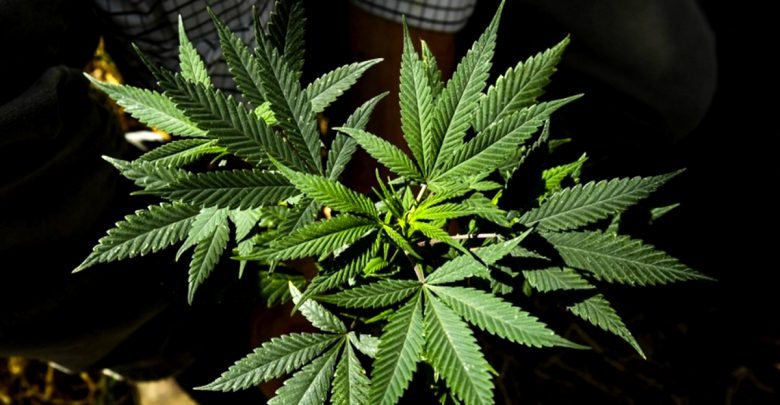
PH set to blaze into medical marijuana legislation
LEGALIZE IT. The world remains divided between those heralding the benefits of the infamous plant, and those decrying it. But in a surprising turn of events, the Philippines could potentially join the former, as the House of Representatives approved on second reading a bill seeking to legalize the use of medical marijuana in the country.
House Bill No. 6517, or the proposed Philippine Compassionate Medical Cannabis Act, was passed by the lower chamber last January 23. Authored by Isabela Representative Rodolfo Albano III, the bill was first approved by the House Committee on Health last September 2017.
As with the legalization movement in other countries, this measure was met with both jubilation and scorn. Proponents celebrate this landmark move, yet critics remain opposed to it.
One of the movement’s supporters comes from a very unlikely place – President Rodrigo Duterte himself has been known to support medical marijuana even prior to his presidential term. In a December press briefing, Presidential Spokesperson Salvador Panelo reiterated the president’s support, saying that Duterte will sign any bill that will legalize marijuana.
With support from the highest official in the land, the future of medical marijuana seems bright in the country. However, many remain ignorant of its health benefits, and some even oppose it despite the evidence.
Should medical marijuana be legal in the Philippines? Should President Duterte push his stance on medical marijuana and legalize it as soon as possible? What are the arguments for and against legalization, and is the Philippines ready for such a progressive legislative move?
The Philippine Compassionate Medical Cannabis Act
The Philippine Compassionate Medical Cannabis Act, then known as House Bill No. 180, was approved by the House of Representatives’ Committee on Health last September 2017.
In the bill’s Statement of Policy, Albano explains that it aims to “legalize and regulate the medical use of cannabis,” and goes on to say that it has confirmed beneficial and therapeutic uses, to treat “chronic or debilitating” diseases.
He is quick to explain that the proposed bill will be pushing for the use and research on medical marijuana, not for its recreational properties.
“Its very clear in the bill. We’re not doing it for recreational purposes and we are not decriminalizing marijuana. Marijuana is still considered as a dangerous drug and all the laws pertaining to the use of marijuana and the planting of marijuana is not decriminalized,” said Albano.
Albano’s original bill was explicit – in it, he says that the act “should not be deemed in any manner to advocate, authorize, promote, or legally or socially accept the use of cannabis or marijuana for any non-medical use.”
This development was wholeheartedly welcomed by the many advocates and patients who were fighting for a better way of life for themselves and their children.
Medical Marijuana Bill brought hope to patients with debilitating diseases
Albano explains that there is scientific evidence showing that medical marijuana could control epileptic seizures, manage pain, treat symptoms related to HIV-AIDS, and even provide palliative care for end-stage cancer patients.
He adds that clinical trials also show the medical potential of the use of cannabis, including preventing cancer, managing anxiety, slowing the progress of Alzheimer’s disease, and controlling muscle spasms and tremors.
The patients, who are the bill’s direct beneficiaries, welcomed this development, and remain hopeful of a future wherein they would have legal access to the medicine that has become essential in maintaining their quality of life.
“Everyday it’s a struggle to survive through pain and additional struggle to access oil from illegal sources,” says one cancer patient; a mother of a patient with brain tumor said that she believes “that medical cannabis can replace conventional treatments like chemotherapy and radiation,”; parents seeing hope for their children, who have epilepsy and cerebral palsy – these are just a few stories of lives that would be greatly improved by the passage of this bill into a law.
The Philippine Cannabis Compassion Society (PCCS), an organization of cannabis advocates consisting mostly of patients and parents of children lobbying for access to medical marijuana, remain hopeful.
Actress and PCCS member Lui Manansala explains that barring any problems regarding the House approval of the bill, the next hurdle would be in crafting a parallel Senate bill, which, after approval, can now be signed into law by President Duterte.
Dr. Jorge Ignacio, head of the Cancer Institute of the Philippine General Hospital and a supporter of medical marijuana legalization, suggests focusing on research on medical marijuana.
“We can start with research, where patients can gain access to it. There are patients who need it. We cannot turn our eyes in the other direction. There is a need for it,” he said.
However, not everyone welcomed the approval of the Medical Marijuana Bill.
Doctors as main critics of the controversial Marijuana Bill
The Philippine Medical Association (PMA) released a statement strongly opposing the bill, saying that it could “lead into diversion of cannabis for recreational use,” and that it “will expose our citizens to a natural, uncontrolled, human experiment with cannabis and its derivatives.”
The statement also cites that the bill is “unnecessary and redundant,” as there are already existing government regulations and procedures that will allow access to cannabis for medical use, and that it is “contrary to the interest of public safety and the common good”.
UP Manila echoes the sentiments of the PMA, as they also released a statement opposing the bill, saying that they “strongly oppose medical cannabis legalization since this will expose our citizenry to unnecessary harm and the risk of poor health outcomes.”
According to the institution, studies on legalization of medical cannabis have shown “an increase in cannabis use and dependence and diversion to recreational use.” They also condemned the continuing public education on the benefits and risks of cannabis use.
Albano was quick to dismiss this, saying that all their fears have already been answered by the bill.
“They are not listening because they have a very narrow perspective and very ignorant on marijuana and the bill itself, ” he said. “Discoveries arise from the unknown not from what is already known. That’s why there’s nothing significant that happens here on in the name of science because doctors like them are so mediocre in their thinking.”
Albano remains resolute in pushing for the bill, saying, “thousands of patients in the country are suffering from serious and debilitating diseases and they need this. We don’t have to put them in jeopardy.”
Senators not in favor of the Philippine Compassionate Medical Cannabis Act
In light of this argument during the initial passing of the bill, Department of Health (DOH) Secretary Francisco Duque III said that he supports the use of cannabis for selected medical cases, but agrees that security measures must be put in place to prevent abuse, stressing that medical marijuana “must have a narrow applicability and must be strictly regulated.”
He was, however, cautioned by Senators Vicente Sotto, Gregorio Honasan, and Sherwin Gatchalian, saying that the interpretation of “compassionate use” of medical marijuana could be abused.
Senator Sotto even warned Duque then that he would object his confirmation before the Commission on Appointments should he insist on supporting this legislation.
Senator Sotto, a staunch anti-drug advocate, is the principal author of RA.9165, or the Comprehensive Dangerous Drugs Act of 2002, which established the Philippine Drug Enforcement Agency (PDEA) and remains as the government’s framework in battling illegal drugs.
Medical Marijuana Bill passes second reading in 2019
Despite this polarization, the controversial bill passed the second reading in the House of Representatives. last January 23.
Albano welcomed the approval, and thanked his colleagues for their support, as he continue to urge the measure’s critics – including congressmen, various groups of doctors, and the medical community – to look into the merits of his proposal, saying that the bill does not and will not promote the recreational use of marijuana.
House Bill 6517, or the Philippine Compassionate Medical Cannabis Act, contains the following provisions:
- Prescribed medical cannabis will only be available in DOH hospitals, tertiary hospitals, and licensed private hospitals
- Only licensed doctors authorized by PDEA can issue prescriptions for medical cannabis, and will be prescribing medical cannabis for very specific conditions and purposes only
- Licensed medical cannabis caregivers, who will be issued special identification cards by the DOH Secretary, can attend to only one patient at a time
- Medical cannabis patients will also be issued special identification cards
Aside from these measures, Albano previously also explicitly stated that the bill disallows marijuana to be administered in its raw form – as a plant or as hash, which would then be smoked in order to be ingested.
House Speaker, celebrities, express support for Medical Marijuana
Aside from President Duterte, the bill finds another major supporter in House Speaker Gloria Macapagal-Arroyo, who also vouched for the effectiveness of medical cannabis.
“I really believe in medical cannabis. As you know I have my problem here (cervical spine) and when I’m in a country that allows it, I put a pain patch but here in the Philippines I cannot do it,” said Arroyo, who suffers from multilevel cervical spondylosis.
Arroyo, who is also one of the authors of the bill recognizes that despite all the studies proving its efficacy, there is still some pushback from both the House and from the Senate.
Another supporter of medical marijuana is popular transportation journalist and personality James Deakin, who, on the day of the second reading approval of the bill, expressed his support on social media.
“Aside from the fact that I have family and friends that have literally been saved by this, I feel strongly about anyone or anything that is oppressed or suppressed solely out of ignorance, arrogance, pride, greed, envy or any other selfish reason,” said Deakin on his personal Facebook page.
“Marijuana has been proven to be effective in treating many, many, many ailments and symptoms. None of that can be rebutted.”
Miss Universe 2018 Catriona Gray is also one of the supporters of medical marijuana, as evidenced by her answer in the Q&A portion of the pageant. “I’m for the use (of marijuana) in medical use but not so for recreational use because I think if people were to argue about “what about alcohol and cigarettes?”, well everything is good but in moderation,” said Gray.
Her answer was warmly received by advocates, including the PCCS, who thanked her and congratulated her for her win on social media.
House Deputy Majority Leader Ron Salo, one of those who voted to approve House Bill 6517 at the committee level, said that the new Miss Universe’s stance could even help the bill’s passage into law.
************
Author’s Note
The issue of medical marijuana is rife with contention, as evidenced by the history of this bill, which is pretty much the same story around the world.
In the Philippine context, full acceptance of marijuana as medicine might be a long way away, but hopefully with the passage of this bill into law, our society can slowly accept that as much as this is about controlling the spread of a perceived dangerous substance, it also about improving the quality of life for patients, and preserving human dignity through access to healthcare for people whom modern medicine has failed.




